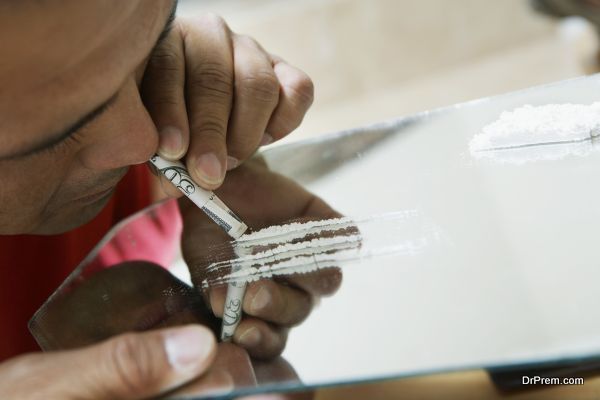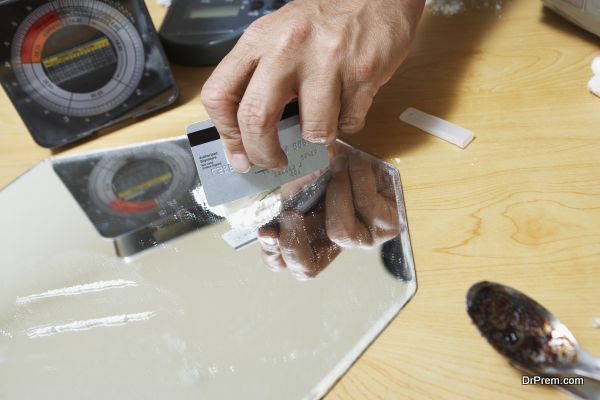Hard drugs and bad life choices that happen as the result of the addiction are very easy to demonize when it doesn’t directly affect you. It’s easy to turn on the television or read a new story online about another incident fueled by drugs and get into the “holier than thou” position. When it’s your mother, father, sister, or brother, however, the dialog will change.
Signs of Addiction
There is a common misconception about your typical, addicted drug user in the notion that they are this stereotypical junkie scoring their next hit in some dark alley and living on the streets collecting cans and scrap to keep it all going. However, functioning alcoholics, heroin addicts, and other opioid users can be your boss, coworker, or even your family member without you knowing.
A functioning addict knows how to position themselves so they aren’t caught. They are well aware of how much time it takes for medication to leave the system. They will continue with their everyday appearance but secretly take to the hard stuff when they can.
Case in point:
· Dipping out for “lunch” to have a drink to keep their BAC levels strong
· Using business travel as an excuse to go on a binge before coming back home
· Having frequent ups and downs in mood and quality of work
The list of these secretive signs of addiction go on and on.
Approaching the Individual
Once you are absolutely sure the person in question shows signs of addiction, it’s time to lay some real truth on them. The mind of an addict is always chasing for the next high; it’s difficult not to be illogical in their decisions because the addiction is so strong, which is why you’ll want to approach them in a very relaxed, logical manner.
Before any of this, you should take the time to understand what it’s like choosing a rehab location [1] as this will give you the proper understanding of what you’re suggesting versus a generalized sense of well-being and good intentions.
Once you understand the process, it’s time to confront the individual. The popular method is to hold an intervention but sometimes this can feel like a breach of privacy to the individual, which could backfire. Perhaps start slowly by reaching out to a rehab center that is experienced and local to their area to gain some guidance [2]. From there begin showing concern and talk to them personally about the subject.
Do not project judgment.
Remember that you are the concerned but understanding individual. You are there to offer guidance and support. Providing them with facts and a logical way to get out of the hole that is addiction is your best bet rather than backing them into a corner.
On-Going Support
Luckily we are in a society that has begun to shun the idea of demonizing users because we’re learning more about psychology, addictive properties of drugs, and realizing that addiction isn’t always living at rock bottom. We’ve become compassionate about it when we have experienced it in our lives.
For these reasons we are now providing better support for recovering addicts:
· Rehabilitation programs for those that do hard time to ease them back into communities instead of “dumping” them on the streets where their only options are to get back into the game
· Disease awareness and the support related to those afflictions that may have been the result of using needles, unprotected sex, or bearing the elements while addicted [3]
· Local support groups and sponsorship to build accountability and stability
Something as simple as being non-judgmental can go a long way with a recovering addict. If this person is a family member it’s best to continually send positive messages and love their direction. They may falter at times and may even relapse but now they have a support network and as long as that’s there they will be able to climb back out of the hole.
I say all this because I’ve seen it destroy a large chunk of family members’ lives. I don’t blame them for their actions because that’s the nature of addiction. I’m glad they are in recovery and I’m especially glad that we are no longer throwing them to the dogs as we would have some decades ago.
You never know who may be an addict in your family because the signs aren’t always there; it can be difficult to connect the dots. Luckily information like this is available and hopefully, it will help you notice the signs and take appropriate action. Stay strong for them.
Sources & Resources:
[1] http://www.cafemom.com/journals/read/1703377/Key_Tips_to_Finding_a_Health_Rehab_Locati
[2] http://clinicalservicesri.com/new-england-treatment/
[3] https://www.drugabuse.gov/related-topics/medical-consequences-drug-abuse
Article Submitted By Community Writer







